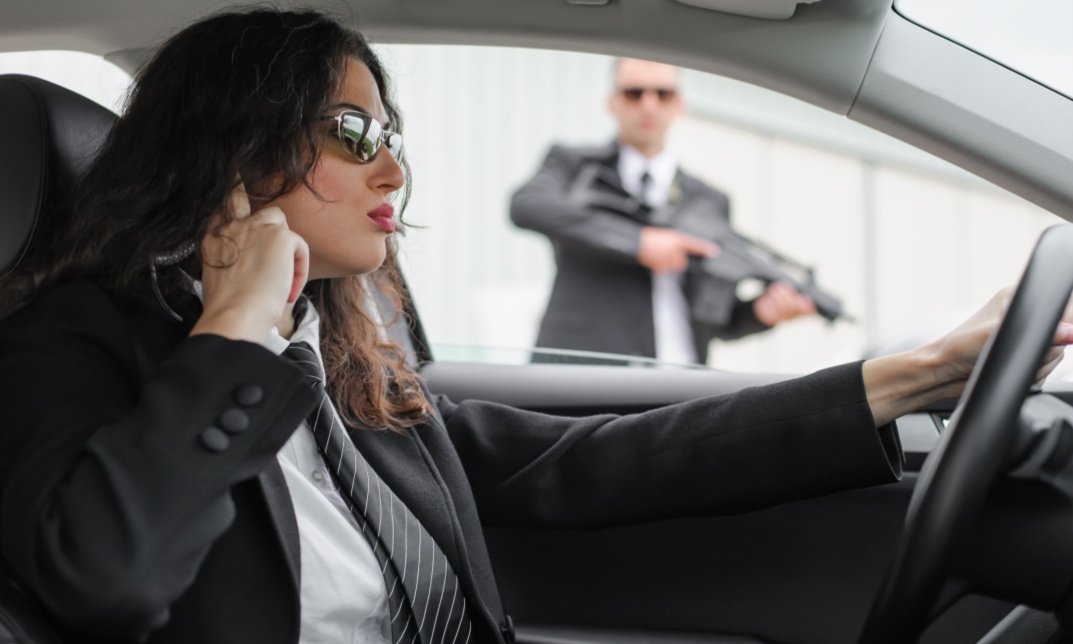No products in the cart.
Are you someone who finds a clear definition of what is close protection? Well, Close Protection is a special security service designed to keep people safe. This service is often used by high-profile people, who might be at greater risk. For example, business executives, celebrities, and political figures.
Close protection involves more than just having a bodyguard. It includes careful planning, risk assessment, and quick responses to any dangers. Plus, close protection professionals are trained to handle many different situations. They can work on managing crowds or avoiding potential threats. In this blog post, we’ll explore what close protection is all about. We’ll look at why it’s important and what skills are needed. Also, we will show how it benefits those who use it.

What is close protection?
Close protection is also known as executive protection. It is a special kind of security service. Especially those who might be at higher risk, like business leaders, celebrities, and politicians.
The main job of close protection is to stop any harm from reaching the person they are protecting. This is done through careful planning and quick action if there is any danger. Plus, they know how to spot threats, manage crowds, drive safely, and respond to emergencies.
Close protection is different from regular security because it is customised to fit the needs and lifestyle of the person being protected. CPOs work quietly and efficiently so that the person can live their life with little to no interruptions. The protection can be provided by one bodyguard or a whole team, depending on how much security is needed.
Close protection gives peace of mind to people who need extra security. Furthermore, it allows them to focus on their work and personal lives without constantly worrying about their safety.
What does a close protection officer do?
A Close Protection Officer (CPO) is a highly trained professional responsible for ensuring the safety of their client. Here’s what a CPO typically does:
- Risk Assessment: Before any assignment, a CPO conducts thorough risk assessments. They identify potential threats to create a security plan tailored to the client’s needs.
- Planning and preparation: CPOs plan the safest routes for travel and secure locations that the client will visit. They coordinate with local authorities and security personnel to ensure all bases are covered.
- Escort and Protection: Whether the client is travelling, attending events, or going about daily activities, a CPO is always nearby to ensure their safety. This includes escorting the client and maintaining a vigilant watch for any suspicious activity.
- Surveillance and Monitoring: CPOs continuously monitor their surroundings for potential threats. This includes keeping an eye on crowds, scanning for unusual behaviour, and staying alert to any changes in the environment.
- Immediate Response: In case of any threat or emergency, CPOs are trained to react quickly and effectively. They can perform defensive manoeuvres, manage crowd control, and implement escape plans to ensure the client’s safety.
- Discretion and Professionalism: A good CPO works discreetly, maintaining the client’s privacy and ensuring that their presence does not disrupt the client’s daily life. They blend into the background while staying ready to act if necessary.
- First Aid and Emergency Skills: CPOs are often trained in first aid and other emergency response skills. They can provide immediate assistance in cases of medical emergencies or injuries.
Overall, a close protection officer’s job is to provide peace of mind by ensuring that their client is safe and secure at all times. They use a combination of planning, vigilance, and quick response to protect their clients from any potential harm.
How to become a close protection officer?
Becoming a close protection officer (CPO) is a rewarding career for those interested in security and personal protection. Here are the steps you need to take to become a CPO:
Get the Right Training:
- Enrol in a reputable close protection training course. If you are interested in close protection, then you can join our online close protection course at Wise Campus. These courses cover essential skills like threat assessment, defensive tactics, first aid, and secure driving.
- Look for accredited programmes that meet industry standards. In some countries, specific certifications are required.
Gain Relevant Experience:
- Start with general security jobs to build your experience. Working as a security guard, in the military, or in law enforcement can provide a strong foundation.
- Experience in high-stress environments and knowledge of security procedures are valuable assets.
Develop Key Skills:
- Being in good shape is crucial, as the job can be physically demanding.
- The ability to quickly assess and respond to potential threats is essential.
- Strong verbal and written communication skills help in coordinating with clients and team members.
Get Licensed:
- Depending on where you live, you may need a license to work as a CPO. Research the legal requirements in your area and complete any necessary licensing exams.
Network and Build a Reputation:
- Join professional organisations and attend industry events to meet others in the field.
- Build a reputation for reliability, professionalism, and discretion. Word of mouth and references are important in this industry.
Stay Updated and Continue Learning:
- The field of close protection is always evolving. Stay updated on the latest security techniques, technologies, and industry trends.
- Consider advanced training courses and certifications to enhance your skills and career prospects.
By following these steps, you can start a successful career as a close protection officer, providing essential security services to those who need them most.
How much does a close protection officer earn?
The salary of a close protection officer (CPO) can vary based on their experience. It can be the client they work for, where they work, and how risky the job is. Generally, CPOs earn between $40,000 and $100,000 per year.
- Experience: More experienced CPOs, especially those with backgrounds in the military or law enforcement, usually earn more. Experience in handling risky situations or protecting high-profile clients can increase their pay.
- Client Profile: Working for wealthy individuals, celebrities, or top executives often means higher pay compared to less well-known clients.
- Location: Salaries can differ depending on where the job is located. CPOs in big cities or dangerous areas typically earn more than those in safer places.
- Risk Level: Jobs with more risk, like protecting people in dangerous areas or during important events, usually pay more to compensate for the danger.
- Skills: CPOs with extra skills such as medical training, advanced driving, or knowledge of other languages may earn more for their additional expertise.
CPOs might also work on short-term contracts with daily rates ranging from $300 to over $1,000, depending on the job and its demands.






